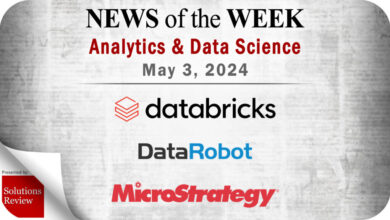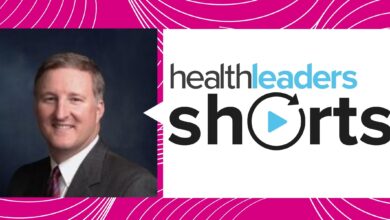Health-tech firm ZS unveils data science’s role in personalised treatments and streamlined trials

“Data science helps enable the early identification of individuals at high risk for specific conditions such as cancer or heart disease by sifting through data sources like Electronic Medical Records (EMR), Electronic Health Records (EHR), Electronic Patient Records (EPR), transactional and biometric data, genetic information, etc. and analysing it for diagnoses, biomarker discovery and disease subtyping,” Menon said.
Elaborating on the process, Menon outlined key steps, including defining the right data strategy, data management, hypothesis creation, and constant learning from additional datasets. These steps, he highlighted, are essential for harnessing the full potential of data science in healthcare.
Discussing the unravelling of genetic variability and the identification of molecular biomarkers in disease progression, Menon highlighted the integration of genes and the environment.
“We have sophisticated AI/ML models centred on disease ontologies and patient journeys to predict critical events such as metastasis in oncology patients, forecast treatment line progression, and anticipate specific debilitating milestones within disease journeys,” he added.
On the subject of streamlining clinical trials through data analytics, Menon mentioned the significant challenges faced in patient enrollment and operational inefficiencies. He discussed how AI and analytics hold promise in optimising trial processes, citing examples such as GenAI’s accelerated delivery efficiency in identifying potential treatments.
Menon also detailed ZS’s contributions to supporting clinical research and optimising trials through acquisitions like Trials.ai and Intelligencia.ai.
Furthermore, Menon shed light on ZS’s AI-powered solutions that effectively understand patient needs and enhance engagement. He mentioned GenAI and Max.AI as groundbreaking innovations, alongside ZAIDYN, an intelligent platform streamlining sales performance management.
Looking towards the future, Menon anticipated breakthroughs in AI, ML, and analytics. He emphasised GenAI’s potential to enhance patient engagement and treatment adherence, along with advancements in natural language processing (NLP) and multimodality. Additionally, he highlighted the role of AI in cybersecurity, underscoring its ability to predict and respond to cyber threats swiftly.
Also Read: Why aligning traditional practice and new medical knowledge is important for newborn health



